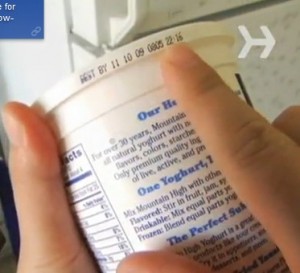Food poisoning happens when a person has consumed food contaminated with certain kinds of parasites, toxins, viruses or bacteria. Majority of the cases that are linked to food poisoning are caused by bacteria of the genus Staphylococcus or Escherichia coli (a.k.a E. coli).
Causes of Food Poisoning
Food poisoning can happen anywhere at any given time but commonly happens when a person eats food outside his home, like during picnics, in restaurants, in big social functions or in school cafeterias. There are only a handful of cases where it happens at home, and most of the time with leftover food. One noticeable fact that food poisoning has occurred is when a large number of people are suffering the same symptoms.
The kinds of poisoning related to food include:
• Shigella
• Salmonella
• Staphylococcus aureus
• Listeria
• Fish poisoning
• E. coli enteritis
• Cholera
• Campylobacter enteritis
• Botulism
The toxins, bacteria, viruses or parasites may enter your food via the following:
• Poor preparation or handling of food
• Water that was used during shipping or growing of the food may hold human or animal waste
• Poultry or meat came in contact with the bacteria from the intestines during processing
Food poisoning sometimes happen from drinking or eating the following:
• food prepared by someone who did not wash their hands properly
• food prepared with the use of unclean kitchen tools such as cutting boards and cooking utensils
• food that contains dairy products such as mayonnaise – food that is prepared with such that is out of the refrigerator for very long time
• Refrigerated or frozen foods that is not stored at proper temperature. This also includes refrigerated foods that are reheated improperly.
• Oysters or fish that are raw
• Raw vegetables or fruits that are not washed properly
• Juices from raw fruits or vegetables; and dairy
• Undercooked eggs or meat
• Water that came from a stream or well, town or city water that are not treated properly
The elderly people and infants are at greater risk of food poisoning. The following are also at higher risk of food poisoning:
• People diagnosed with serious medical illnesses such as diabetes or kidney illnesses
• People with weak immune systems
• People traveling to areas that are exposed to germs or bacteria that cause food poisoning
Special not to expectant mothers; it is best for pregnant women to watch out for food poisoning as it will affect their baby.
Symptoms of Food Poisoning
The symptoms vary from the settings and the kind of bacteria that has infected the human body. All bacterial food poisoning though have similar symptoms which include some of the following:
• Fever and chills
• Fatigue
• Loss of appetite
• Stomach cramps
• Abdominal pain
• Watery diarrhea, oftentimes accompanied with blood
• Vomiting
• Headache
• Nausea
• Weakness – this may indicate a serious infection which can lead to respiratory failure which is linked to botulism.
The signs will appear hours after consuming contaminated food or other symptoms may start a day or two after. The pain may last for several hours and the sickness may last for several days, ten at maximum.
Diagnosis and Tests for Food Poisoning
The diagnosis is done based on the details on how it started and where it happened. Doctors will ask the patient a series of questions that will help them identify the source of the poisoning. Tests are conducted to help support their diagnosis and these tests vary from the symptoms and history of health the patient has. Most of the time it includes stool samples. Other tests involve blood, vomit or the food consumed to identify the cause of the symptoms.
In rare and most severe cases, doctors may request sigmoidoscopy – a process wherein a thin tube is put inside the anus for the purpose of locating the source of infection or bleeding.
Treatment for Food Poisoning
The treatment usually depends on the source if they are identified and the seriousness of the symptoms. In most cases, the poisoning is resolved without any medication. In other cases the sickness may last for days.
The treatment generally done to patients is to keep them hydrated by replacing the fluids lost from the body due to vomiting and diarrhea. Electrolytes and fluids that are lost due to constant diarrhea will need to be replaced.
Adults and children who are seriously dehydrated will need to be treated at the hospital and monitored. This way they will be able to receive some fluids and salts via IV rather by mouth. This is the quicker way to hydrate the body and replace the important minerals rather than doing it orally.
As much as possible, food poisoning should be avoided at all costs. Some cases related to these that happen at home mostly are linked with leftover foods. According to official reports, leftovers should be consumed within 4 days after they have been refrigerated. If you do not anticipate eating them within the allotted time, it is best to freeze the food immediately.
How long does Food Poisoning Last?
Food poisoning can last anywhere from one day to two weeks; it depends on what kind of food poisoning you have. The most common type; staph food poisoning lasts only for a maximum of couple of days. But full treatment from food poisoning may take five to six days. One should take a light diet after food poisoning symptoms fade away. Do consult your doctor if the conditions lasts for more than 2 week. In case, you have been vomiting for more than once a day, have bad diarrhea, are pregnant or get constant, intense stomach cramps, then you should see your doctor immediately.
